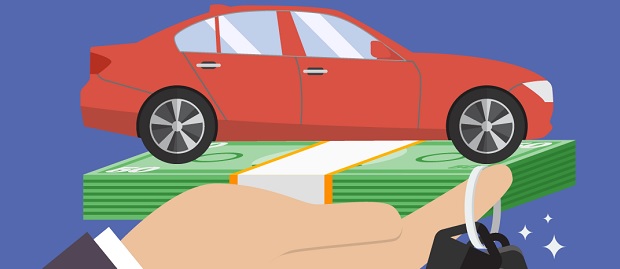Personal loans and car loans are two distinct kinds of loans which can be used for different purposes. Both of these very common types of financing choices can be used for purchasing a car, but their nature and purpose vary significantly. If you are wondering which you must prefer for your financial requirements of car buying expenses, you must consider their differences to find what suits your needs the best. In this article, we learn about them both and their differences in detail.
What Is A Personal Loan
A personal loan is a commonly used kind of loan which can be used by the borrowers for a variety of purposes. So, whether you wish to purchase a car, consolidate existing debts, buy other expensive things, pay education expenses, medical expenses or something else, these loans can be easily availed.
A key element which sets personal loans apart from most other kinds of loans is that these may or may not be secured. This means that collateral is typically not required as these are primarily unsecured loans, however, sometimes they may be secured and require collateral. Alternatively, a person with a bad credit score can also opt for the secured loan to increase their chances of getting the loan approved or getting more suitable terms.
What Is A Car Loan
A car loan, also known as an auto loan, is a specific kind of secured loan which is created to make car buying simpler for people. Cars are expensive and you would have to be really rich to afford them in single payments, which is realistically not possible for the majority of the population. A car loan, through monthly repayment options, makes it possible for everyone to get a car.
Borrowers can repay the loan amount along with some interest in monthly or bi-monthly payments for a fixed period of time until the entire amount is paid off. The exact terms with regards to repayment modes, monthly amounts, interest rates, and loan term, among others vary for each borrower. The variations are based on the credit history and score of every individual borrower along with the loan amount requested.
Similarities Between Car Loans and Personal Loans
Although the two kinds of loans are significantly different from each other, there are also a few similarities between them which are worth knowing. The key similarities include the following.
Creditworthiness of Borrowers
For each kind of loan, whether personal loan or car loan, the creditworthiness of the borrower is the main criteria which is assessed by lenders. To evaluate how creditworthy a particular potential borrower is, the lenders ask for a lot of information and check all of it to assess validity.
Common information sought includes details about the borrower’s employment stability, income details, savings, and credit score and history. These details reveal how risky or safe it is to lend money to a borrower, and how likely they are to default on their loans. This helps the lender determine whether or not they wish to provide the loan, and what interest rate they wish to charge in return.
Nature Of The Loan
Both personal loans and car loans are typically fixed term loans which feature a fixed rate of interest for the entire term of the loan. This means that the borrowers would have to make the same amount of monthly payments from the starting of the repayment term to the end of it and closing of the loan. This is quite beneficial as borrowers can plan their future finances effectively and without any scope for discrepancies to occur.
Differences Between Car Loans and Personal Loans
In spite of a couple of similarities, car loans and personal loans are largely different from each other. These differences need to be clear in the minds of borrowers to ensure they make an informed decision when choosing between the two. The key differences include the following.
Loan Term
One of the main differences between a personal loan and a car loan is the duration for which the loan is provided. Generally, a personal loan is granted for a shorter term as compared to a car loan. The shorter duration means that the monthly payments will be higher in the case of personal loans as opposed to car loans.
However, the longer duration of the car loans can mean more interest payments in addition to returning the principal amount, so how much you save may be negligible in total.
Purpose of the Loan
A personal loan can be used for any purpose. This means that if you want the loan for a car, you can use it for much more than just purchasing the vehicle. This can include getting any external accessories, etc.
On the contrary, a car loan can only be utilized for purchasing the car and nothing else.
Interest Rates
The rate of interest offered for a personal loan is generally higher than that offered for a car loan. Moreover, the interest rate for a personal loan is usually always fixed.
Contrarily, a car loan can be provided at a fixed interest rate, or it may be provided at an adjusted monthly rate. In this case, the initial term of the loan comes with a fixed interest rate, post which, the rate can be changed periodically based upon the prevailing market rate.
Collateral Requirement
A personal loan is usually an unsecured one, which means that there is no need for collateral. In case a borrower chooses it for their car purchase, they do not risk losing the vehicle in case of loan default.
On the other hand, a car loan is almost always secured, and the car for which the loan is being taken, itself acts as collateral. This means that in case of default, you can lose the car.
Conclusion
Personal loans and car loans are very different from each other, each presenting its own set of advantages and disadvantages for people based on their individual circumstances and preferences. Although car loans are specifically designed for car buying, borrowers can also look into personal loans for that purpose if it suits them better.



